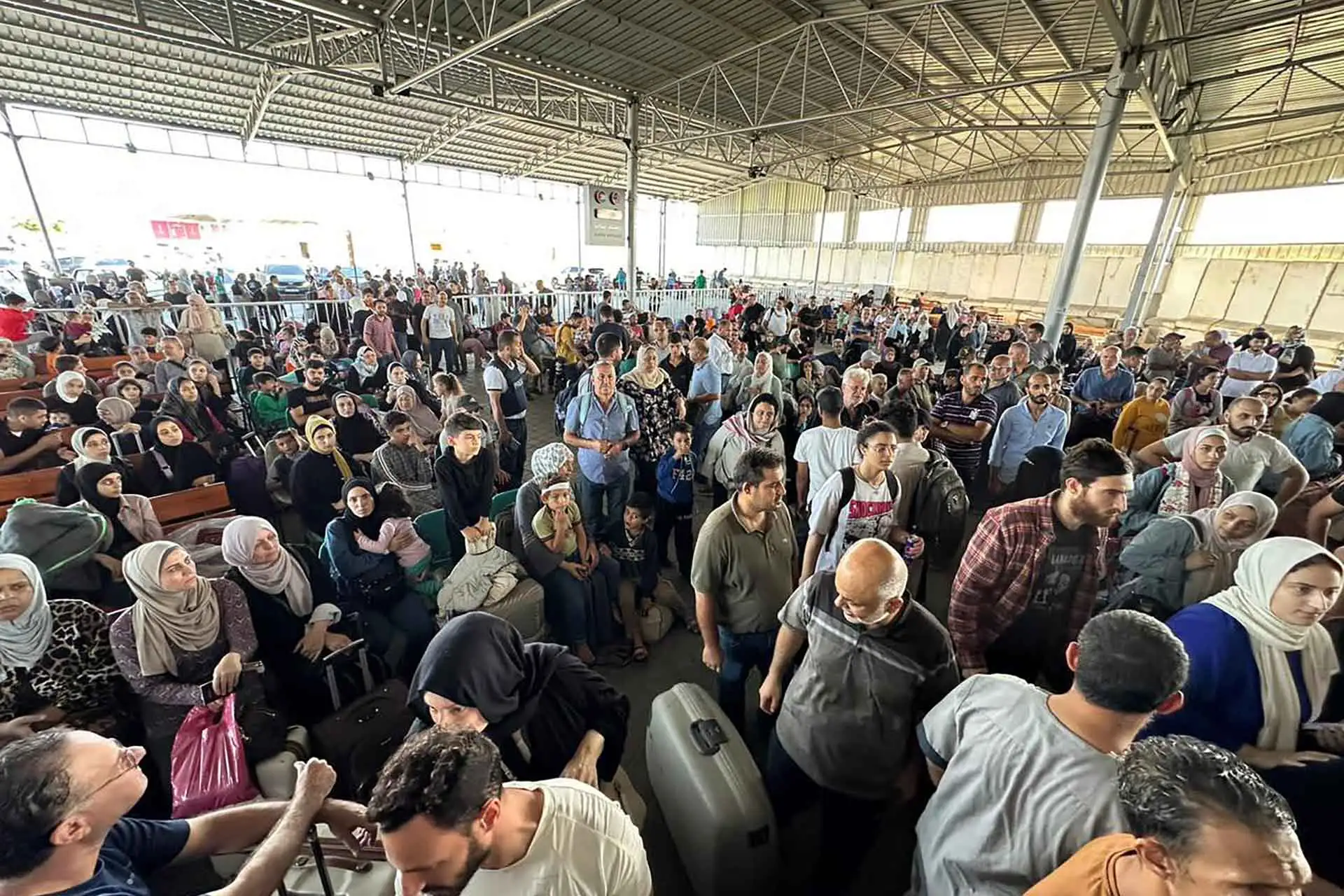After their home outside Gaza City was flattened by Israeli bombardment, Rasha Ibrahim and her family fled south, hoping to seek refuge in neighboring Egypt.
Though her husband and three children are Palestinian, 31-year-old Rasha has Egyptian citizenship, which she hoped would help her family cross the tightly controlled Rafah border, Gaza’s only outlet since Israel laid siege to the coastal strip in October.
But she has not heard back about her repatriation request, which the family submitted through an online portal launched by Egyptian authorities in early December.
“We are dying in silence,” Rasha, who is struggling to feed and clothe her children in central Gaza, said through tears over the phone. “It is very cold in our nylon tent. We have no food … we live in constant fear and horror.”
There is a faster way to get through the Rafah border crossing. But that option is only available to those with thousands of dollars to spare.
For years, a network of Egypt and Gaza-based travel agents and fixers have offered fast-tracked passage through Rafah for a price, ranging from several hundred to several thousand dollars, depending in part on how frequently the border has been open for crossing.
The deeper the desperation to leave, the better the business. More than 100 days into the conflict, during which Gaza’s other Israeli-controlled exit has been shut, rates are soaring. While the prices fluctuate wildly, some brokers are now charging Palestinians between $4,500 and $10,000 to secure a crossing permit, according to more than a dozen interviews conducted by OCCRP and the Cairo-based SaheehMasr media platform. The rate for those with Egyptian nationality is lower, at around $650 to $1,200 per person.
Reporters spoke to 15 Palestinians and Egyptians who had reached out to brokers to ask about leaving. Two had successfully left the enclave by paying $4,500 each in fees, while three said they had been scammed by the agents and lost their cash. Others were desperately trying to raise money by selling their gold and other personal belongings, borrowing from friends and relatives, or through online crowdfunding.
Rasha said she was told it would cost a total of $40,000 to get her Palestinian husband and three children out through Rafah.
“No way we can afford that,” she said.
Some of these offers are openly advertised by travel agencies online, or shared in social media groups. Reporters who contacted the listed numbers were given quotes on the spot, such as an Egyptian agency that said it charged Palestinians $7,000, Egyptians $1,200, and other foreign passport holders $3,000 to exit.
Reporters were not able to determine exactly how these providers manage to arrange the crossings. But their ability to secure fast clearance from the Egyptian security services that control the border has long spurred allegations that a system of bribes is greasing the wheels.
“In 2022, we already collected testimonies about Egyptian officers extorting Palestinians to allow them to exit from Rafah,” Ahmed Benchemsi, the regional communications director for Human Rights Watch, told OCCRP.
“New reports of skyrocketing bribe rates for those desperate to leave are disheartening,” he said, condemning “Israel’s willful starvation of Gaza” and "some Egyptian officers’ rapacious gatekeeping” of the border.
Egypt has denied any bribery or extortion is taking place. In a statement published on January 10, the head of Egypt’s state Information Service, Diaa Rashwan, rejected the “unfounded allegations” that additional fees are being imposed on Palestinians at the crossing.
The agency did not respond to OCCRP’s requests to comment.
Ugh. Well, if this is the case I wonder if there’s a legit fund to help pay the “non bribery” Egyptians for them to cross.
So an mosulm country is not helping the gazans? Wonder why… Gaza is filled with so many good people, none of them are terrorist



